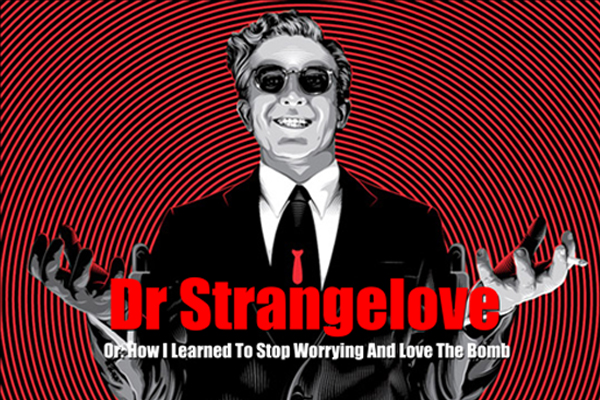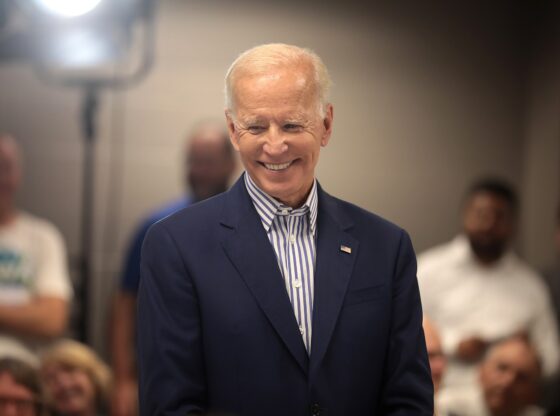
The following is a satire for the Opinions section.
It’s a movie week! If you haven’t been acquainted, allow me to introduce you to “Dr. Strangelove or: How I Learned to Stop Worrying and Love the Bomb.”
Like last week’s “Ulysses,” “Dr. Strangelove” is a work that I first experienced in school. I watched the film in an English class to learn about satire, and there could have been no better pick. Mind you, it’s is a very enjoyable movie outside an academic setting, as well.
“Dr. Strangelove” was released in 1964 under the direction of Stanley Kubrick. It is often discussed in connection with the famous late English actor and comedian, Peter Sellers. Sellers played three different roles in the movie: Captain Lionel Mandrake, President Merkin Muffley and Dr. Strangelove himself, a former Nazi and expert on nuclear war. “Dr. Strangelove” also features George C. Scott as General Buck Turgidson, Keenan Wynn as Colonel Bat Guano, Sterling Hayden as General Jack D. Ripper and Slim Pickens as Major T.J. “King” Kong.
If it’s not obvious merely from the names of the movie characters, the film is a work of satire. As mentioned, I was shown the film to understand satire, and “Dr. Strangelove” is an icon of the genre for the way that it pokes fun at the behavior of the entire world during the Cold War. The movie gives people an inside look at what goes on behind the scenes of a threatening nuclear situation, though it does so with irony, comedy, over-sexualization and an unsettling realism.
Though “Dr. Strangelove” is a classic black comedy movie about war and politics, Kubrick originally envisioned it as a drama. He soon realized that ideas like a “doomsday device” and an overwhelming paranoia and fear of communists seemed too ridiculous to be realistic, though they quite were at the time. Kubrick decided that his film would be more effective if it triggered uncomfortable laughter and necessary reflection.
Personally, I liked the movie for that ability to evoke humor and thought. “Dr. Strangelove” really is hilarious, and you can view it as a harmless comedy if you try, but good luck forgetting the film after you watch. Many aspects of the movie, especially its ending, leave me feeling uncomfortable and guilty for laughing; like I said, it’s a little too realistic to be strictly a farce. Although the anxiety of the Cold War has passed, it’s no secret that the world is often on thin ice these days. Politics and war are everywhere, and “Dr. Strangelove or: How I Learned to Stop Worrying and Love the Bomb” is plenty relevant today.
For a taste of the irony, humor and characters the film has to offer, check out the trailer. If you like it, rent or buy the movie sometime this summer. It was a huge hit upon its release, and it continues to be praised as a classic. It’s one you don’t want to miss. If “Dr. Strangelove” doesn’t interest you, stop worrying—you’ll learn to love it.
Great Quotation: “Survival kit contents check. In them you’ll find: one forty-five caliber automatic; two boxes of ammunition; four days’ concentrated emergency rations; one drug issue containing antibiotics, morphine, vitamin pills, pep pills, sleeping pills, tranquilizer pills; one miniature combination Russian phrase book and Bible; one hundred dollars in rubles; one hundred dollars in gold; nine packs of chewing gum; one issue of prophylactics; three lipsticks; three pair of nylon stockings. Shoot, a fella’ could have a pretty good weekend in Vegas with all that stuff.”
- Major T. J. “King” Kong, “Dr. Strangelove or: How I Learned to Stop Worrying and Love the Bomb.”











